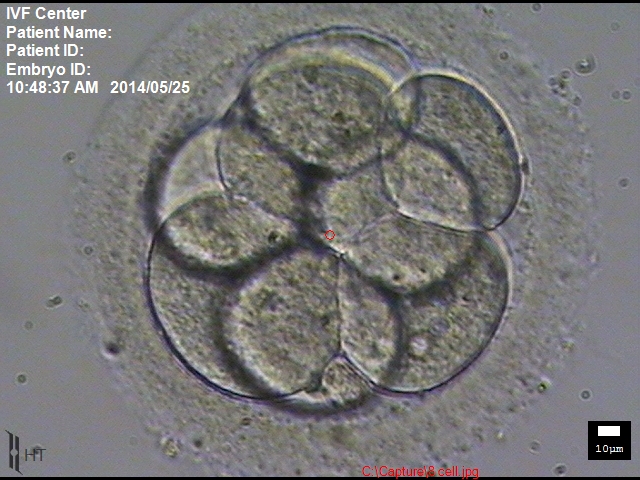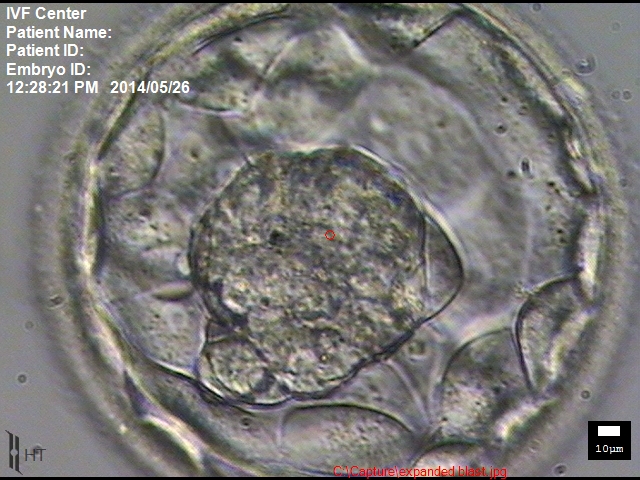At the Fertility Center of Oregon, we understand that reproduction is a sensitive and personal issue. We are committed to providing sophisticated testing services to facilitate having a healthy child. Preimplantation Genetic Testing for Monogenic or Single Gene Defects (PGT-M) and Preimplantation Genetic Testing for Aneuploidies (PGT-A) are among those diagnostic services offered. PGT-A is a comprehensive chromosome screening that examines embryos for abnormalities before transfer to the uterus while PGT-M identifies whether a fetus has inherited a known genetic defect from a parent.
What is Preimplantation Genetic Testing for Monogenic or Single Gene Defects (PGT-M)?
PGT-M is a technique that assists couples, with a known inherited condition in their family, to avoid passing it on to their children. PGT-M is used when one or both parents have a known genetic abnormality, and diagnostic testing is performed to determine if the embryo has also inherited the abnormality. The procedure is performed before implantation, thus allowing the couple to decide if they wish to continue attempting to conceive with the pregnancy. PGT-M can test for more than 100 different genetic conditions.
Primary Candidates for PGT-M include:
- Carriers of an autosomal recessive condition. For carriers of an autosomal recessive condition, there is a 1-in-4 risk of each embryo being affected.
- Carriers of an autosomal dominant condition. For carriers of an autosomal dominant condition, there is a 1-in-2 risk of each embryo being affected.
- Couples with Chromosome Disorders.
- Couples with a family history of sex-linked disorders. Couples with a family history of a sex-linked disorder have a 1-in-4 risk of each embryo being affected. (Half of all male children.)
- Previous child with a genetic condition.
Benefits of PGT-M Testing
For many genetic conditions, cures do not currently exist. Additionally, available treatments often carry substantial risks or adverse effects. PGT-M enables couples to pursue biological children who might not have done so otherwise.
Reasons for Preimplantation Genetic Testing for Aneuploidies (PGT-A)
Research has determined that as women age, the likelihood of having an embryo with an abnormal chromosome increases, and conversely the chance of having an embryo with normal chromosomes decreases. It is theorized that with aging, chromosomes in eggs become less likely to divide correctly, leading to extra chromosomes or chromosomes that are absent. Most embryos with chromosomal abnormalities fail to implant, or if implantation occurs, the embryo fails in the first 12 weeks of pregnancy.
PGT-A provides individuals and couples with additional information that may reduce the likelihood of miscarriage, decrease the risk of abnormal pregnancy, reduce the amount of time and additional costs inferred with multiple IVF cycles and increase the possibility of pregnancy with single embryo transfer (eSET).
Some of the more common reasons for testing with PGT-A are:
- Recurrent Miscarriages
- Advanced Maternal Age (35 and older)
- Single Embryo Transfer
- Patient Concern
Benefits of PGT-A Testing
Having PGT-A as a tool in your reproductive care can provide you with more information about the status of your embryos. In the end, having the chromosome status of each embryo increases the likelihood of achieving pregnancy through IVF.
As with any testing procedure, one of the most commonly asked questions is, “What information will I gain from this test?” Results are interpreted to recognize the following:
- Chromosome Duplications – An extra copy of chromosomes can result in conditions such as Down Syndrome (Trisomy 21)
- Chromosome Deletions – Missing copies of chromosomes
- Sex-Chromosome Abnormalities – Duplications or deletions of X and Y can result in a multitude of conditions. Commonly known examples of these conditions include Klinefelter Syndrome and Turner Syndrome.
- Gender Identification – The gender of an embryo can be identified through PGT-A.
PGT-A is only used to test for chromosomal abnormalities. PGT-M is used to test for single-gene mutations associated with genetically inherited diseases (i.e., Cystic Fibrosis, Huntington’s Disease, Muscular Dystrophy and many more).
Normal Embryo Development





